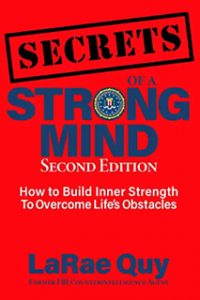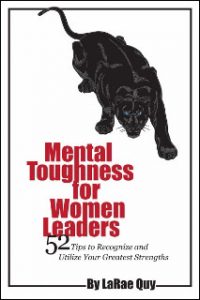FBI agents spend a great deal of time learning how to build trust with others. For that reason an agent’s most useful investigative tool is the interview. This is where trust is built—nose to nose, knee to knee. We need information from the people we talk to, and they need to know they can trust us in return.
Trust is at the heart of every business because trust forms the basis of every relationship. Entrepreneurs, small business owners, and leaders need to work with people both inside and outside of their organization to create mutually beneficial relationships.
Trust is a choice. If we know how to build trust with others, it means they have confidence that we will keep our word. They trust that we are exactly who we say we are, and that we won’t desert them when times get tough.
Trust is give and take. It means you’ve found a way to relate to other people in a way that is meaningful to them.
One of today’s most essential skills is to learn how to build trust with others. Here are 7 ways that I have found useful in highly volatile situations that were filled with uncertainty, and where trust was critical:
1. Follow Through With Actions
The reason you build trust with others is so that people know that you will follow through when you’re assigned a task. You earn a reputation as someone who doesn’t break your commitment.
If you do need to break a commitment, communicate it early and treat it as renegotiation. With consistent follow through with actions, you are seen as someone who is reliable and trustworthy.
How To Make It Work For You: It’s as simple as this—keep your word. Not only does this strategy communicate to others that you respect their time as much as your own, it signals that you expect the same consideration from them.
2. Develop Good Communication Skills
It’s important to never leave a conversation until all parties are clear on what is expected of them. This is crucial in any negotiation or settlement discussions. Clarify the agreement because if someone’s expectations are not met, trust is forfeited. This is most common when sensitive issues like money are involved in the conversation.
We learn how to build trust with others by give and take. Trust doesn’t happen when you avoid the difficult details and hope the other person understands. Trust is built when you have the difficult conversation and you’re able to communicate why the conversation is important.
How To Make It Work For You: Very often the message we send to others is not the one we intended to send. If you’re not sure how you come across, ask a friend to listen to you and get their feedback.
Just as often, even if we do send the right message, the way in which the other person perceives it might convey a different meaning to them. Before you leave a conversation, loop back and say, “This is what I heard you say…is that accurate?”
3. Practice Patience
As the spokesperson for the FBI in Northern California, I experienced incredible pressure from reporters to meet deadlines. As a result, I became inflexible and short-tempered with the people around me. It became difficult to build trust with others because the message I sent was that my time was more important than theirs.
The rush to get things done tends to create an uncomfortable environment. It’s easy for people to feel left out or unimportant if they can’t make a direct contribution to the crisis at hand.
How To Make It Work For You: Pressure can be good, but too much of it can leave a person impatient and inflexible. It takes time to build trust with others so make them feel just as important as the crisis that lurks over your shoulder. You’ll always have a crisis to handle; you may not have another opportunity to gain that person’s trust in you.
4. Establish A Culture Of Purpose

Successful business owners understand that their company exists because it improves the lives of their customers. The only reason a customer or client pays for the company’s services is because it provides a clear benefit.
Chris Edmonds talks about the importance of a healthy, purposeful culture in his book, The Culture Engine. Organizations that are successful don’t try to make their people happy at work. Instead, they create a culture where trust is produced because they share a clearly stated purpose.
The culture of purpose for FBI agents is Fidelity, Bravery, and Integrity. Once any one of those tenants is abrogated or compromised, there is a breakdown of trust. Read current news to understand that this is what the FBI is experiencing at the present moment.
How To Make It Work For You: Create a purpose narrative that reinforces the reason your company or work group exists. It helps to build trust with others when you find colleagues or customers who were helped by someone in your department or company and then share these stories with others.
5. Mirror Other People
A good way to build trust with others is to mirror their mannerisms. Neuro-linguistic researchers have found links between our mind, language, and behavior. The three primary modes through which people react to the world around them are visual (seeing), auditory (hearing), and kinesthetic (feeling).
These sensory channels become important when we built trust with others because they help us relate to people in a way that is meaningful to them. Pay attention to the language that a person uses—chances are, they will follow one of the following three patterns in their speech.
- Sounds like . . . a lot of information.
- Looks like . . . a lot to learn.
- Feels like . . . more than I can handle.
How To Make It Work For You: If someone expresses themselves using a feeling word, use a feeling word to respond. If someone is an auditory person, use sounds to bring home your point: “it sounds like a thousand people in the room.” For visual people, ask them what the issue “looks” like to them.
6. Notice Their Words
When people are passionate about something, they use words that are freighted with meaning. The first step is to notice the words they use that are full of energy. Here are some energy words another person may use in a conversation that point to their emotional state:
- Disappointed
- Baffled
- Cautious
- Confused
- Grateful
- Hesitant
- Interested
- Relaxed
- Surprised
- Uncertain
- Nervous
- The list goes on…
How To Make It Work For You: After you have noticed the way a person uses an energy word, repeat it, and then pause. When you repeat the word, and then pause, it alerts them to the fact that you 1) notice their concern, 2) have validated it, and 3) given them an opportunity to further elaborate.
7. Admit You Don’t Have All The Answers
It takes genuine confidence in yourself to admit you don’t know something, but this simple act of trust on your part speaks volumes to the people who hear it. Your team will understand that you are an honest and open person.
When you show your vulnerabilities, it helps to build trust with others because they will see you as someone like them, someone who doesn’t have all the answers.
How To Make It Work For You: Trust is reciprocal, so the more you trust others, they more likely they will trust you. Trusting others also requires you to take a risk because you cannot always predict their response.
© 2018 LaRae Quy. All rights reserved.
You can follow me on Twitter, Facebook, Instagram, AND LinkedIn
Are you mentally tough? Here is my FREE Mental Toughness Assessment
Get my new book, “Secrets of a Strong Mind (second edition): How To Build Inner Strength To Overcome Life’s Obstacles”

Author of “Mental Toughness for Women Leaders: 52 Tips To Recognize and Utilize Your Greatest Strengths”





Yet again, spot on. I’ve also found that one of the keys to establishing trust is having an uncomfortable conversation. When you sense that trust is tenuous, be upfront instead of building resentment or going all out to change someone’s mind and convince them to trust you. Definitely plays into your recommendation to focus on our communication skills when building trust and getting others to weigh in if our intentions are out of alignment with our impact.
Thanks! Will share.
Alli
Another wonderful post, LaRae! Trust is key to any relationship and interaction. I would add that I try to keep an open mind as well as see different perspectives to develop trust with others. When I am committed to trying out new ideas suggested by someone else it automatically creates a bond between us. It shows that I value their contributions and they have important points to make.
Thanks LaRae!
A great, practical article containing points I can put to use. Thank you LaRae!